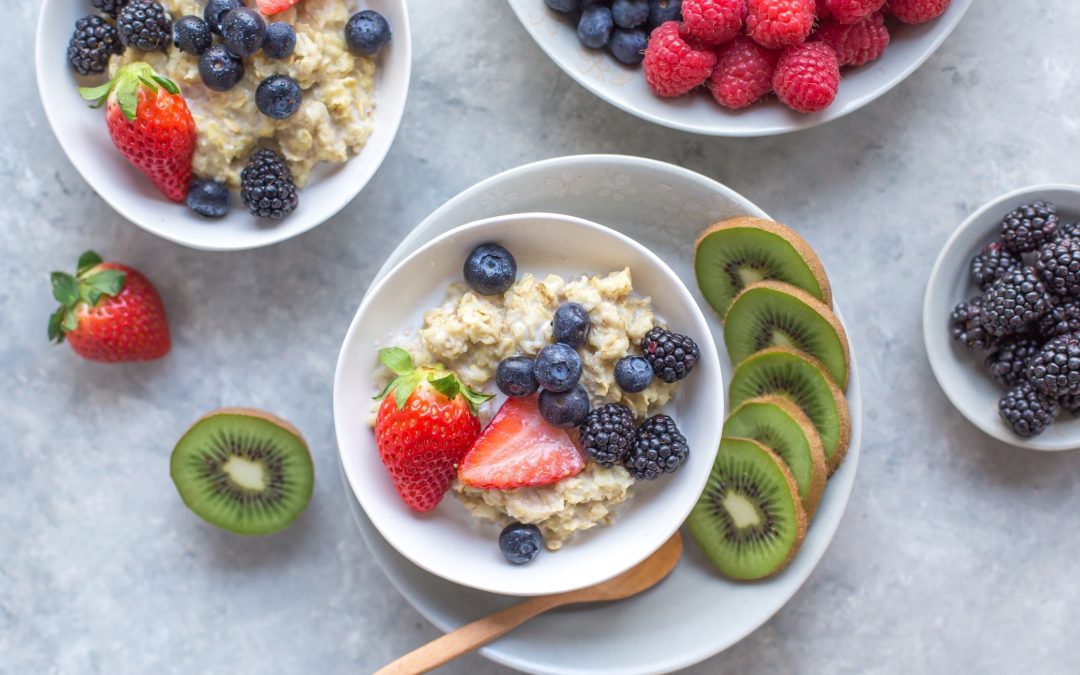Hippocrates stated, “Let food be thy medicine and medicine be thy food” over 2000 years ago. His famous quote still rings true to this day, especially for anyone who suffers from back pain.
What if there were certain foods you could eat that could help to reduce your back pain? Wouldn’t you want to know what those foods were?
In this article, we will explain the link between food and back pain, as well as what the best foods are to reduce back pain.
How food and back pain are linked.
The common link that connects food to back pain is inflammation.
Inflammation is a natural process that occurs within the body. Think of a time when you may have twisted an ankle. Your ankle begins to swell and turn red. It’s tender to the touch. Movement is limited. All of these things happen so that you can heal properly.
Unfortunately for us, the type of inflammation that happens when twisting an ankle is not the only kind of inflammation that occurs within the body.
Chronic inflammation is inflammation that remains within the body due to a number of factors including:
- Poor diet
- Stress
- Obesity
The typical Western Diet is full of foods that create inflammation and is lacking in foods that reduce it. Adding stress or obesity to this diet creates a powder keg of chronic inflammation waiting to ignite into multiple conditions including:
- Chronic back pain
- Arthritis
- Inflammatory bowel disease (IBD)
Over 80% of your immune system is located within your gut. Your gut is also the first place that suffers when you are chronically inflamed. This is because your immune system begins to work overtime to try and bring inflammation levels down.
Eating foods that boost your immune function and repair your gut can lower chronic inflammation within the body and consequently reduce back pain.
It’s what’s in your food that matters.
The best foods to eat to boost immune function and fight inflammation are foods that contain the following components:
Water. Water is fundamental to making sure everything within your body is working properly. Aim to drink at least 0.5-1 oz of water for every pound you weigh (ie. 75-150 oz for someone weighing 150 lbs).
Antioxidants. The most common forms of these molecules are Vitamin C, Vitamin E, and Beta Carotene. Antioxidants remove substances that cause inflammation from our bodies. Find these in vibrantly colored red, orange, and yellow fruits and vegetables.
Omega-3 fatty acids. This form of fat reduces inflammation within the body by ‘canceling out’ the pro-inflammatory Omega-6 fatty acids. Find these in plant-based forms of fat such as nuts, avocados, and seeds, as well as fish and fish oil supplements.
Probiotics. These bacteria help us digest food within our gut. Studies show that people who eat a healthy varied diet have healthier gut bacteria than those who do not. If using a probiotic supplement make sure there are at least 2 million CFU’s (colony-forming units) per serving.
Fiber. Also known as ‘prebiotics’, fiber is what our gut bacteria consume. This is why individuals who eat more fiber-rich diets typically have healthier gut bacteria and better immune function. Aim to get at least 25g of fiber/day. The typical American will only get ~15g of fiber daily!
By making sure to eat a diet rich in these components, you can begin to build a healthy gut foundation to combat chronic inflammation.
Since we generally don’t list off ‘antioxidants’, ‘fiber’, or ‘probiotics’ in our grocery lists, here are the top foods to eat that contain these immune-boosting components.
The best foods to eat.
These are the top 5 recommendations for foods to begin adding to your diet:
Berries.
High in antioxidants, water, and fiber, you can’t go wrong adding berries into your daily routine. Eat them as a snack or add them into a smoothie or salad for flavor.
Try these: blueberries, raspberries, strawberries, and blackberries.
Fermented foods.
A food that is fermented is extremely high in probiotics. Aim to have at least one serving of fermented foods a day.
Try these: kombucha, pickles, kimchi, yogurt, kefir, or probiotic supplements.
Fish.
Always opt for wild-caught fish when possible, as they are higher in omega-3s. Try to have two 6 oz servings of fish each week to meet the suggested intake
Try these: tuna, salmon, cod, pollock, or fish oil supplements.
Nuts and seeds.
Rich in omega-3s and fiber, nuts and seeds are another great food group to help boost your immune system. Add them to trail mix or on top of a salad for some extra crunch.
Try these: pistachios, almonds, walnuts, pumpkin seeds, or sunflower seeds.
Whole grains.
High in fiber, vitamins, and minerals, whole grains feed the probiotics within your body to keep them working properly. Make sure there is at least 3g fiber per serving in packaged foods you purchase
Try these: quinoa, whole grain bread/pasta, lentils, brown rice, or ancient grains.
Making diet modifications.
By adding in foods that boost your immune function, you can start lowering chronic inflammation within your body. This will build a foundation to help you start feeling better, today.
Changing your diet can be a difficult task. Our Telespine Health Coaches have an extensive background in helping clients make dietary modifications that fit their needs. We’d love to help you, too. Contact us for more information.
